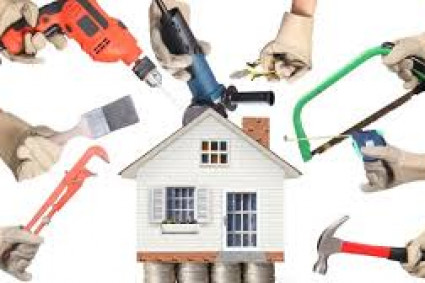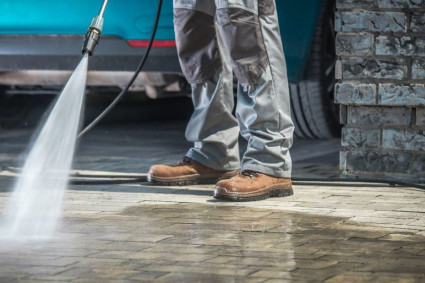Introduction
Having a home professionally inspected before purchase is strongly advised for buyers in the Fort Worth area. An inspection identifies existing or potential issues with the home so you can make an informed decision. However, inspections don't always uncover every problem. Sometimes there are mistakes or oversights during the inspection process.
As a buyer, you want to avoid common home inspection mistakes in Fort Worth that could lead to missing serious and expensive issues. Being aware of potential pitfalls and taking steps to cover all your bases helps ensure the inspection delivers maximum value. Read on to learn about mistakes buyers often make so you can avoid them and get the most out of your Fort Worth home inspection.
Choosing the Wrong Inspector
One of the biggest mistakes Fort Worth homebuyers make is choosing the wrong inspector. You want an experienced professional licensed in Texas who will do a thorough job inspecting all aspects of the home. Avoid only going with whoever your real estate agent recommends or picking an inspector based on the lowest cost.
Vet inspectors thoroughly look for:
· Proper credentials and licenses
· Strong reviews and references
· Experience inspecting Fort Worth area homes
· Membership in professional organizations
· A comprehensive inspection process
Also, verify what’s included and not included in the inspection. Many don’t check for termites, radon, mold, and other environmental hazards unless you pay extra. Choose an inspector who provides a detailed inspection report with photos of issues found.
Not Attending the Inspection
Another common mistake is not attending the home inspection in person. By being there, you can follow along as the inspector evaluates each area of the home. This allows you to ask questions in real-time, point out specific concerns, and understand issues being discovered.
You also get to see first-hand any reactions and non-verbal cues from the inspector as they assess the property. Important context and details around defects may be missed if you only read the written report later. Photos of issues also don't provide the understanding you gain from observing the inspector testing components in the home.
Make an effort to clear your schedule so you can attend the 2-3 hour inspection from start to finish. You’ll be better equipped to make important negotiations regarding repairs and credits with the seller.
Skipping Documentation Review
Failing to thoroughly review documentation ahead of time is a mistake that can limit the effectiveness of the inspection. Make sure to obtain and read materials like:
· Seller disclosures: Details of any known defects, repairs, or renovations done.
· Inspection reports: From past inspections for roof, termite, HVAC, and foundation which may reveal existing issues.
· Homeowner association docs: Clarify property aspects the HOA is responsible for vs. the homeowner.
· Utility bills: Can reveal trends, and show evidence of high costs indicating issues.
· Warranties & manuals: Provide useful lifetime and maintenance info for roofs, appliances, and systems.
Reading this information helps you identify areas to focus on during the inspection. Provide documents to the inspector as well so they have better context when evaluating the home. Don’t let a lack of preparation reduce what you get out of the inspection.
What the Inspector Checks
During the inspection, the home will be examined from top to bottom over 2-3 hours. The inspector will look at:
· Roof: Shingles, flashing, gutters, attic ventilation, sheathing, chimneys
· Exterior: Siding, paint, windows, doors, decks, patios, drainage, grading
· Garage: Door, opener, walls, foundation, ventilation
· Structure: Foundation, framing, floors, walls, ceilings for cracks or water damage
· Interiors: Walls, ceilings, floors, windows, doors, railings, cabinets, countertops
· Plumbing: Pipes, fixtures, pressure, functionality, leaks, water heater, vents
· Electrical: Panel, wiring, outlets, switches, breakers, lighting fixtures
· HVAC: Furnace, AC unit, thermostat, ductwork, filters, vents
· Attic: Insulation, ventilation, moisture, evidence of pests/leaks
· Basement/crawlspace: Moisture, insulation, foundation
· Built-in appliances: Oven, dishwasher, garbage disposal, microwave
· Safety: Smoke alarms, fireplaces, garage door openers, security system
· Pest issues: Signs of termites, rodents, bees, cockroaches
· Grading and drainage: Gutters, downspouts, slope away from home
They’ll test functionality, wear and tear, and potential issues that may arise in the short and long term. Areas prone to water damage are closely checked. Expect a lot of poking around throughout the process!
Not All Inspectors Are Equal
Keep in mind not all home inspectors operate the same way. Some may do a more cursory inspection while others take a very meticulous approach. Some may utilize special equipment and testing capabilities beyond a basic visual inspection. Others just eyeball things.
Don’t assume that all certified home inspectors have the same level of experience and thoroughness. Checking references helps determine if an inspector has satisfied previous clients. Follow up an inspection with your checks of areas you still have uncertainty about. Ultimately, you don’t want to rely on an inspector who misses major defects that cost you down the road.
Conclusion
Avoiding common mistakes in home inspection in Fort Worth TX is crucial to avoid making the largest purchase of your life for a home with undisclosed issues. While inspections can't catch everything, being an educated buyer reduces the risk of defects falling through the cracks. Do your homework in choosing the right inspector. Attend the inspection in person, ask questions, and take notes. Review all documentation thoroughly before the inspection occurs. Follow up with further evaluations if you have remaining concerns. Keeping these tips in mind leads to an inspection that provides maximum protection for your home investment in the Fort Worth area.



